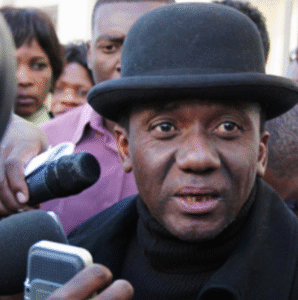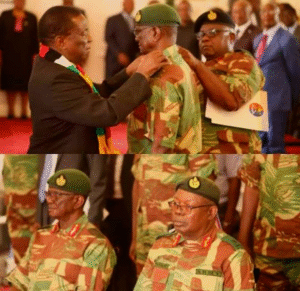THE MORAL QUANDARY: CAMPAIGNING WITH CONVICTED RAPISTS – A TEST OF ZIMBABWE’S POLITICAL INTEGRITY

In a shocking turn of events, Zimbabwe finds itself at a crossroads of ethical deliberation as the nation gears up for crucial general elections on August 23, 2023. The uproar stems from the controversial presidential amnesty deal that led to the release of Bobby Makaza, a convicted rapist, from prison. Adding fuel to the fire, Makaza was not only granted freedom but was also bestowed with a house and funds by Zanu PF, before being enlisted to campaign for both the party and President Emmerson Mnangagwa.

Makaza, aged 60, had been serving a 16-year sentence for the heinous crime of raping a 10-year-old girl in 2019. However, Mnangagwa’s decision to release him, along with thousands of other inmates, on grounds of prison decongestion and Makaza’s age, has sparked widespread public outrage. The implications of this move are profound, as it raises pressing questions about the nation’s moral compass and the ethical standards upheld by its leaders.
The release of convicted rapists and murderers onto the streets has ignited fierce opposition from women, children, and human rights organizations. They argue that this decision not only violates legal principles but also inflicts fresh trauma upon the victims and their families, forcing them to relive the horrors of the past. The disconcerting alliance between Makaza, Mnangagwa, and Zanu PF is emblematic of a morally disconcerting trend that places political expediency above justice and human decency.
Critics contend that the rationalizations provided by the government for Makaza’s release are insufficient and unsatisfactory. While age and prison congestion might have been cited as grounds for clemency, the broader societal impact and psychological consequences of releasing such dangerous criminals appear to have been disregarded. The victim’s parents, undeterred, have embarked on a grueling mission to reverse the release and ensure that Makaza is held accountable for his reprehensible actions.
Amidst this disheartening narrative, the larger question looms: can a President and a ruling party, operating in a democracy that prides itself on constitutional governance, justify using criminals and rapists as political pawns? Does the pursuit of power override fundamental moral principles?
Delving into philosophical realms, the dichotomy between Aristotle’s emphasis on moral virtue and Machiavelli’s pragmatic approach to politics surfaces. Aristotle postulated that politics should cultivate virtuous citizens capable of noble actions, while Machiavelli prioritized the preservation of power, even if it meant acting against conventional morals.
Drawing from these philosophical musings, it becomes apparent that a political entity devoid of ethical foundations merely serves as a vehicle to attain power, rather than a genuine force for positive change. A true political party should be guided by values and principles that reflect the collective good and uphold the sanctity of human rights.
As Zimbabwe stands on the precipice of a pivotal election, the nation’s soul is tested. The spectacle of a convicted rapist turned political campaigner casts a shadow over the integrity of the political landscape. The question persists: should politics adhere to a higher moral standard, or should pragmatic considerations dictate the course of action?
The impending elections are not merely a battle of ideologies, but a litmus test for the nation’s commitment to ethical governance. Zimbabweans must decide whether to allow the machinations of realpolitik to overshadow their collective conscience or to demand a political sphere that is guided by unwavering moral principles.
In a world where the tides of power often clash with the shores of morality, Zimbabwe’s choice reverberates beyond its borders. It speaks to the global debate on the role of ethics in politics, a debate that transcends time and place. The outcome of this electoral contest will unveil whether Zimbabwe is a true democracy with a moral compass, or whether it risks descending into the annals of history as a mere pawn in the game of power politics.




